The Last Stop on Second Street
Everything I need to know right now is in the church yard and the parish hall.
Wednesday night I went to a recovery meeting in the parish hall of the church I was married in – the one with the old cemetery surrounding it, where dozens (probably hundreds) of my relatives, including grandparents, great-grandparents, and great-great grandparents are buried. My mother is in the graveyard, too, not because it is her family, but because my father will join her there.
My dad still attends this church when he is feeling up to it. More than eighty years ago he sang in the choir as a young boy.
The church is located on Second Street, which is the equivalent of Main Street in any other small town. (Or small town of the last century, at least.) The street runs parallel to – and one block over from – Pilottown Road, which in turn runs parallel to The Lewes and Rehoboth Canal, which separates the town of Lewes (Delaware) from Lewes Beach.
“You could shoot a cannonball down Second Street at 5 p.m., all the way from Savannah to Shipcarpenter. No one was around, everyone went home for supper, and all the shops closed up, except for the Rexall drug store that stayed open until six,” Dad tells me one night after dinner, when I’ve gently persuaded him to talk a bit before he goes back to bed. He has become so fatigued that he sleeps or naps for the better part of the day and night now.
This is the mid-to late-1930s he’s talking about, a time when he was in the third, fourth, and fifth grades. The family – all eight of them plus a couple hangers on – had moved back to Lewes from Kansas City, where the Dust Bowl raged and the Depression oppressed.
“We had 11 people in the house in Kansas City during the Depression. All of us and Grandmother, and mother’s parents, and cousin Betty. They had no place else to go,” he remembers. “And the dust was so bad. We had to keep the windows open because we didn’t have air conditioning. But every day the dust poured in and every day we swept it out.”
These days, Dad gets teary when he recounts a childhood story, or really most any kind of story. His emotions are running close to the surface, just below a thin veneer of courage. I can tell when the tears are coming, because his face changes shape as his chin and shoulders drop and his head tips down. He stops talking for a minute, swallows, and then looks up and smiles, his sea-green eyes glistening and his voice trembling as he describes an event or scenario that in retrospect now seems remarkable. He is overwhelmed by gratitude.
Late last week, he got news that he might be eligible for a procedure (we will know for sure after another test this week) which could bring his 94-year-old heart back from the brink, at least for a little while. He wept with tears of joy.
At the church on Second Street, Dad also attends a book group, led by his pastor on Tuesday mornings. This fall they have been reading the works of a wide range of spiritual thinkers from Black contemplative Howard Thurman to author and theologian C.S. Lewis. Dad is very fond of the pastor, who is the rector of the church and the man who presided at my marriage in 2021.
At the last meeting that Dad felt well enough to attend, he noticed that the pastor and many in the group were a little down, clearly feeling anxious about the approaching election. Around the circle, people were voicing worry, so Dad decided to take a different tack when it was his turn to talk. He wanted to be optimistic, so he talked about how they got through the Depression and the Dust Bowl and the war (his oldest brother was lost at sea) by sticking together, helping each other out.
In facing his own mortality, Dad is taking a very wide view of things, which is more than this daughter is capable of doing.
Currently, one of Dad’s favorite jokes – one I think he has told the pastor many times – concerns his final resting place, which, of course, is the church cemetery. “When I die, they’re going to write on my grave, ‘He finally found a parking spot on Second Street.’” He loves that.
Second Street is like a time capsule of memories and a harbor of refuge for family ghosts. Not many of the structures have changed significantly in the last 100 years. The mansard-roofed house my great-grandmother once owned is still standing on Second Street. So is the shingled building that housed the general store that two of my relatives owned and ran in the 1800s. There’s a hotel that bears the family name, though no one in the family ever owned it.
What was the A&P is now the Lewes Oyster House, but I remember going to the A&P with my sister to get S&H green stamps that we supposedly were collecting for a transistor radio.
And I remember the narrow news shop with the big picture window and the soda fountain with tall stools where I’d go with my Dad on Saturday morning. We went to pick up his newspaper, and probably to get me out of my mother’s hair. That store burned down, but I always think about it when I peer down the alley where it was and see the entrance to the antiques store I now love to explore. In later years, I rode my bike into town to visit the toy store on Second Street for a puzzle or maybe a set of watercolors.
Today the award-winning all-volunteer garden group, Lewes in Bloom, keeps Second Street filled with giant pots of flowers and plants. Tourists and retirees, who gradually (and then suddently) discovered Lewes in the years after the departure of the odoriferous clam and fish processing plants, flock to Second Street.
There are restaurants, a bank, a flower shop, an ice cream shop, gift stores, clothing stores, a liquor store (the one that was my uncle’s favorite) and an Italian deli.
And at the far end, past the church, a collection of houses on either side of the street, all built in the previous three centuries – one even before 1700 – still standing, neatly preserved. At the very end of the street is the town historical complex with artifacts and dwellings from the town’s earliest settlements in the 1600s and vestiges of the fishing industry that once thrived.
The church itself takes up an entire block. Founded by members of the Church of England in 1681 (though the current building was built much later), St. Peter’s, like many Episcopal churches, proudly promotes inclusivity:
We have a legacy of inclusion, aspiring to tell and exemplify God’s love for every human being; women and men serve as bishops, priests, and deacons in our church. Laypeople and clergy cooperate as leaders at all levels of our church. Leadership is a gift from God and can be expressed by all people in our church, regardless of gender, sexual identity or orientation. We believe that God loves us all – no exceptions.
These aren’t just words on a website. I know the church has a robust LGBTQ membership. I know they have a strong youth outreach. I’ve experienced a warm welcome here. And of course, I know that the church offers space for recovery groups to gather, too.
At the parish hall last Wednesday night, the reading at the recovery meeting was from the Daily Reflections book. The theme was acceptance. Right now, I’m struggling with acceptance – of certain situations, of certain people, of reality – for God’s sake! But I know I can’t afford to dwell in that place of agitation.
As I sat in a folding chair sipping my decaf coffee out of a paper cup and looking out into the dark night through the hall’s tall windows, it struck me that out there in the church yard, laid to rest way too early (and at a much younger age than I am now) were two family members who died of alcoholism. At least two that I know of, anyway. Probably more.
But for the Grace of God, there go I.
I must concentrate on staying on the beam, so I can be of use to the people I care about.
This morning my sister will drive my Dad to the 10 a.m. service at the church if he feels well enough. They will find a (temporary) parking spot on Second Street, sit in the front pew, sing the hymns my father loves, greet the pastor, have a friendly word with folks who are of all different political persuasions, and walk back through the graveyard. Dad will begin to talk about the landscaping around mom’s and his brothers’ gravestone and he might get teary. They will go home, and my sister might make waffles.
I, having returned to the Island yesterday, will be malcontent, unaccepting of the distance between us, but plotting my next return. 💚






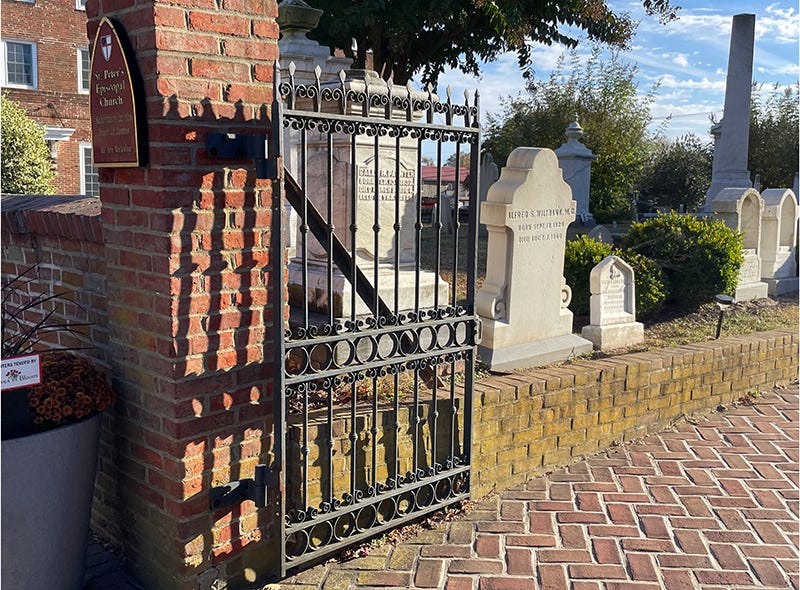
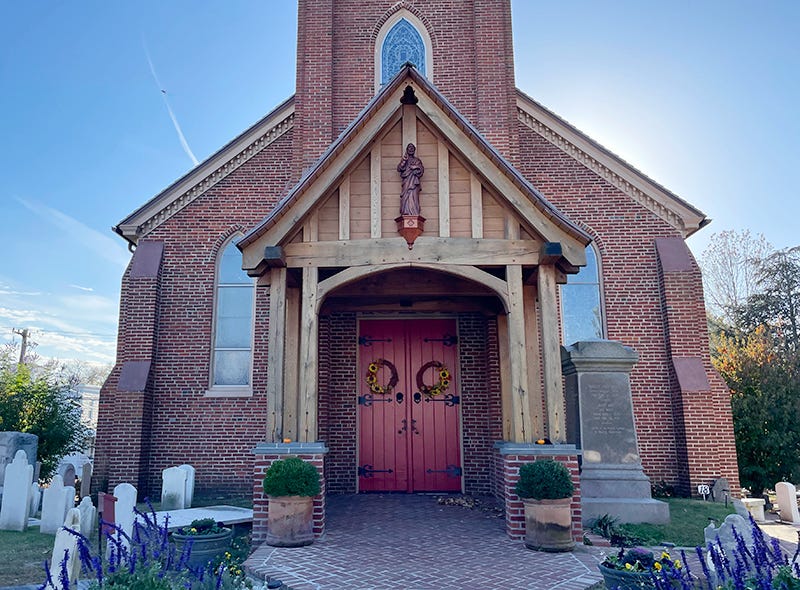

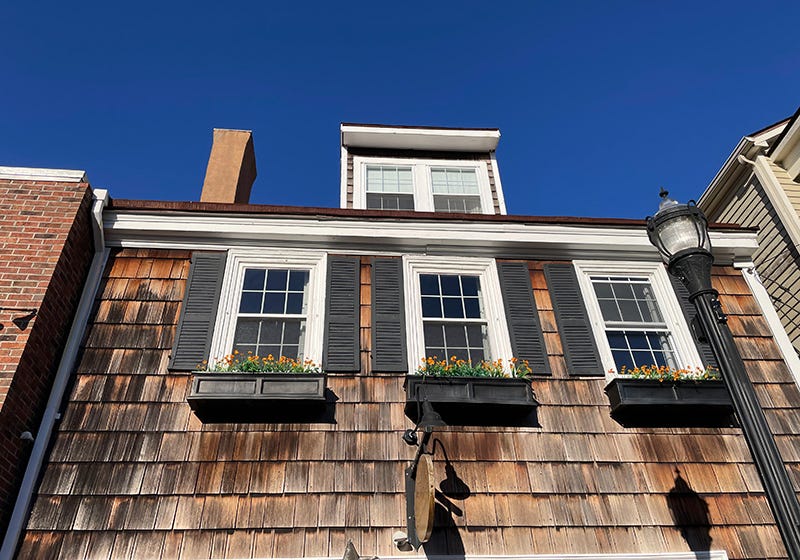


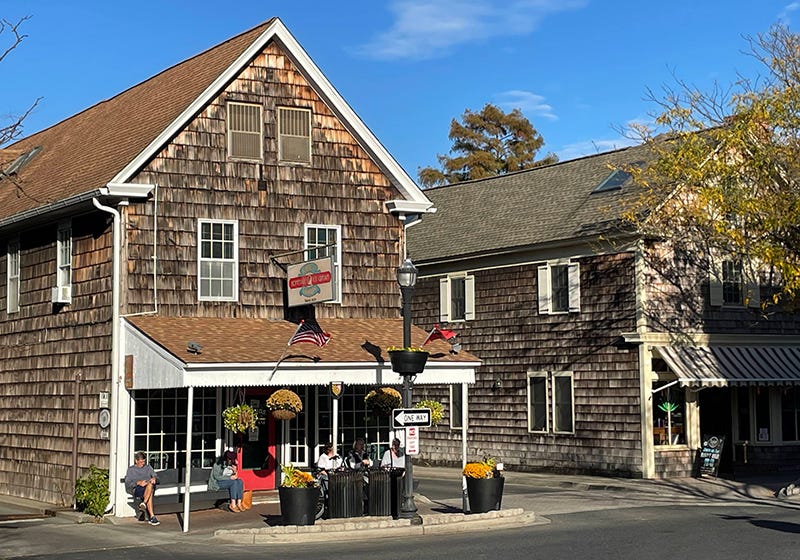
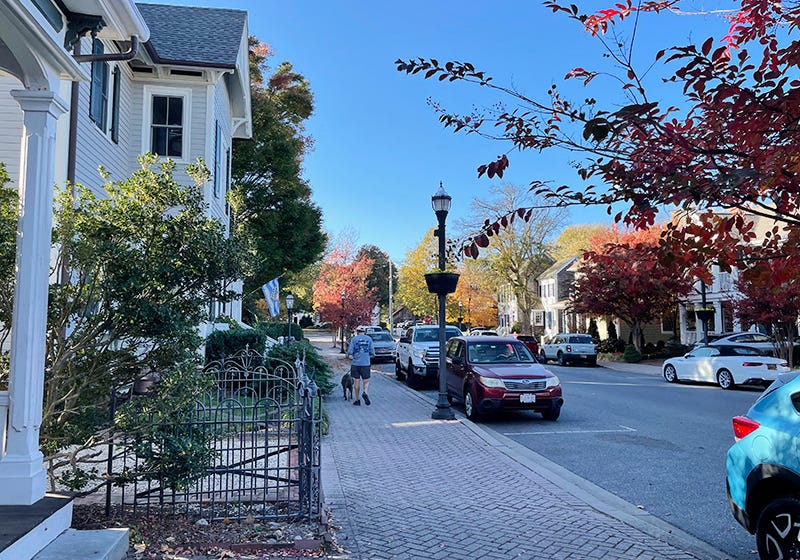

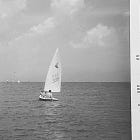

It is easy to share when we feel triumphant; and so hard to share when we feel most vulnerable. You are so brave. Thank you for sharing & reminding us that vulnerability is not a weakness.
Your posts always draw me in. So thoughtful on some of the the smallest yet very important points of life. Such a dear dad you have. I wish him the best for his possible heart procedure, and for you too.